Frontiers of Resilience Conference Schedule
March 21 | Day One
9:00 am | Finding the Hero Within Traumatized Youth, Dr. Kenneth Hardy
As more and more young people struggle with complex mental health issues, depression, alienation, rage, and violence, our solutions and strategies for reaching them have become increasingly more simplistic and oriented towards punishment, control, and symptom relief. In the ‘anger management,’ evidence based, punishment-first era in which so many of us work, getting to the core traumatic experiences that often serve as an incubator for young people’s acting out behavior is a challenging endeavor. As they flaunt their masks of invincibility alleging that “nothing matters”, we often focus on their ‘posturing’, negative attitudes, and acting out behaviors, rather than their underlying trauma, vulnerabilities, and hurt. Our incessant search to unfold what is wrong with young people often leaves many of us oblivious to their underlying strengths and prevents us from discovering the hero within that resides in virtually all youth. This presentation will examine the hidden wounds of trauma that often underpin the acting out behaviors of troubled youth, while also emphasizing the importance of finding the hero within that resides in all youth. The VCR Model, a strength based approach, will be introduced as an effective tool for uncovering the hero within.
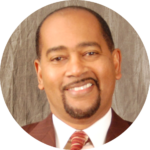 Kenneth V. Hardy, Ph.D., is a Professor at Drexel University in Philadelphia, Pennsylvania and is Director of The Eikenberg Institute for Relationships in New York, NY. Dr. Hardy has co-authored the following books: Culturally Sensitive Supervision: Diverse Perspectives and Practical Applications; Re-visioning Family Therapy: Race, Class, and Culture; Teens Who Hurt: Clinical Interventions for Breaking the Cycle of Violence; and Minorities and Family Therapy. He has been a frequent contributor to the popular media and has been featured on the Oprah Winfrey Show, Dateline NBC, and 20/20, and the Discovery Health Channel. Dr. Hardy maintains a practice in New York City.
Kenneth V. Hardy, Ph.D., is a Professor at Drexel University in Philadelphia, Pennsylvania and is Director of The Eikenberg Institute for Relationships in New York, NY. Dr. Hardy has co-authored the following books: Culturally Sensitive Supervision: Diverse Perspectives and Practical Applications; Re-visioning Family Therapy: Race, Class, and Culture; Teens Who Hurt: Clinical Interventions for Breaking the Cycle of Violence; and Minorities and Family Therapy. He has been a frequent contributor to the popular media and has been featured on the Oprah Winfrey Show, Dateline NBC, and 20/20, and the Discovery Health Channel. Dr. Hardy maintains a practice in New York City.
11:00 am | Community Resiliency Model, Elaine Miller Karas
The Community Resiliency Model® (CRM) trains community members to not only help themselves but to help others within their wider social network. The primary focus of this skills-based, stabilization program is to re-set the natural balance of the nervous system. CRM®’s goal is to help to create trauma-informed and resiliency-focused communities that share a common understanding of the impact of trauma and chronic stress on the nervous system and how to restore or increase resiliency using this skills-based approach.
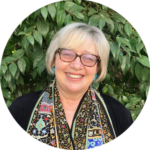
Elaine Miller Karas is the executive director and co-founder of the Trauma Resource Institute. She co-created the Trauma Resiliency Model and Community Resiliency Model. Elaine has presented at major international conferences including the Trauma and Resilience Conference, Berlin, Germany, the 64th Annual Conference on Global Affairs, ISTSS and the Psychotherapy Networker. In addition to her work in the United States, Elaine has taken her work to Nepal, Great Britain, Tanzania, Haiti, the Philippines, Turkey, China, Guatemala, Kenya, and Rwanda.
11: 45 am | Lunch / Film: “Against All Odds”
The Fight for a Black Middle Class probes the harsh and often brutal discrimination that has made it extremely difficult for African-Americans to establish a middle-class standard of living. Through dramatic historical footage and deeply moving personal interviews with prominent African Americans, including Isabel Wilkerson, Elijah Cummings, Alvin Poussaint, and Angela Glover Blackwell, Against All Odds explores the often frustrated efforts of black families to pursue the American dream.
This revealing and sometimes shocking documentary connects the dots of American history to reveal how the traditional route up the economic ladder by attaining a job that pays a living wage and then buying a house is a financial ascent that has been systematically denied to black families. Reduced educational opportunity, rampant employment discrimination, the inequitable application of the GI bill, mortgage redlining and virulent housing segregation are among the injustices that have converged to limit the prosperity of black families from generation to generation.
Yet through it all, host Bob Herbert reports, black Americans have shown time and again in the face of cruelty, systematic discrimination and injustice a tremendous resilience and determination to get their fair share of the American dream. He says, “There are no barriers that can’t be overcome. When dreams remain unrealized, it simply means the fight goes on.”
1:20 pm | Addressing Trauma in System Involved Youth, Dr. Monique Marrow
Youth in contact with the juvenile justice system often have complex trauma histories that have lead to adaptive but potentially problematic thoughts and behaviors. These youth also tend to experience higher rates of depression, anxiety, substance use and PTSD. Emerging research is beginning to confirm that traumatic experiences are what causes a young person to ‘hang with the wrong crowd’ or get into trouble, not some underlying mental health issue. This presentation will describe the core components necessary to develop trauma-responsive environments and practices within juvenile justice residential settings.
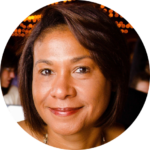
Dr. Monique Marrow is a child clinical psychologist and serves as a training specialist for the Center on Trauma and Children. She has worked for several years in the field of juvenile justice as a clinician, administrator and national consultant. Dr. Marrow serves on National Child Traumatic Stress Network’s Steering Committee, Affiliate Advisory Board, Community Violence, Complex Trauma and Justice Consortium Committees. She is co-chair for the Juvenile Justice Treatment Sub-Committee and recently co-authored a training curriculum with members of this committee entitled “Think Trauma: A Training for Staff in Juvenile Justice and Residential Settings.”
3:00 pm | Breakout Sessions - Click to view workshops
Yoga for Trauma Recovery
Hanna Gilan
This workshop offers some basic yoga tools for anyone working with families impacted by toxic stress in their homes or communities, and for personal health and wellbeing. In this condensed version of Echo’s one-day Yoga for Trauma Recovery training, we will be combining physical practice with the some of the science on trauma and recovery. Participants will preview some basic yoga and mindfulness techniques to practice in any environment – from the classroom to the office – to bring balance and peace to the mind and body. Read More
Embodied Childraising: Responding to Children Under Pressure
Kirstie Seaborne
Raising children is not just a logical process – it is relational, visceral, sensory, emotional, and above all, an embodied experience. We are practiced and comfortable living in our head but have become disconnected from our bodies. Echo has brought Kirstie Seaborne from the UK to offer a condensed version of her popular one-day training: “Responding to Children under Pressure – Changing our Embodied Response to Challenging Behaviors.” Kirstie will help you identify the physical and mental patterns that kick in when you are under pressure and then teach you how to embody a new, more connected and attuned response. Read More
Community Resiliency Model
Elaine Miller Karas & James Bigelow
This session will introduce participants to six wellness skills. CRM® helps create trauma-informed and resiliency-focused individuals and communities, imbuing them with a common understanding of the impact of trauma and chronic stress on the nervous system and how to restore or increase resiliency using this skills-based approach. The two fundamental goals of CRM® are to help adults and children learn to track their own nervous systems in order to bring the body, mind and spirit back into greater balance, and to encourage people to pass the skills along to family, friends and their wider community. Read More
The Resilience Toolkit: Implementing a Practical Framework
Nkem Ndefo & Karen Calasuonno
This interactive and experiential workshop will teach participants to confidently implement The Resilience Toolkit, including an opportunity to practice the gently organic therapeutic tremor, an evidence-informed practice that uniquely completes the stress cycle. Grounded in theory, evidence, and a social justice context, The Toolkit utilizes selected mindfulness and movement practices to promote embodied self-awareness, nervous system, and emotional regulation. The Toolkit empowers participants with an intersectional and ecologically sensitive framework to identify their own stress physiology and select appropriate regulation skills that build resilience over time. Read More
The Light Shines Ahead: A Code for Living with Loss
Shaun Tomson
Shaun Tomson was at the pinnacle of his professional and personal life when his fifteen-year-old son, Mathew, died in a tragic accident. Drawing on the lessons he learned from his South African childhood and from riding the world’s most dangerous waves, he found the strength to face the hardest challenge of his life. He also found inspiration and hope by looking to “the light that shines ahead” – experiencing the spiritual growth that is often a feature of post-traumatic growth. His book, ‘The Code – The Power of “I Will”’ sets out a powerful code for reevaluating one’s purpose after loss. As Shaun says, “The lessons of a life spent surfing are the lessons of surfing through life: Every moment holds the possibility of failure and tragedy, every moment the promise of success and happiness.” Read More
March 22 | Day Two
9:00 am | How Trauma & Resilience Cross Generations, Dr. Rachel Yehuda
Recent advances in molecular biology and epigenetics have provided a new understanding about the long-term effects of stress. This presentation will focus on intergenerational transmission of trauma as a particularly enduring effect of stress. Most of the research has been conducted on adult children of Holocaust survivors, but has now generalized to include children of other trauma survivors such as children born to pregnant women who survived the World Trade Center attack on 9/11. The research explains the contribution of early environmental experiences – including parenting – on our molecular make up and how that molecular signature is passed on from parent to child. These changes are adaptive and can contribute to greater vulnerability to stress, but also greater resilience. This work has already led to a better understanding of biological risk factors for PTSD, as well as the ability to predict how someone will respond to trauma.
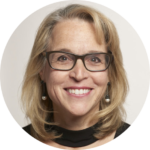
Rachel Yehuda, PhD, is the Director of the Traumatic Stress Studies Division at the Mount Sinai School of Medicine. Dr. Yehuda is a recognized leader in the field of traumatic stress studies. She has authored more than 250 published papers, chapters, and books in the field of traumatic stress and the neurobiology of PTSD. Her current interests include the study of risk and resilience factors, psychological and biological predictors of treatment response in PTSD, genetic and epigenetic studies of PTSD and the intergenerational transmission of trauma and PTSD.
10:40 am | Survivor Cafe, Elizabeth Rosner
Elizabeth Rosner will be introducing her book, “Survivor Café: the Legacy of Trauma and the Labyrinth of Memory.” As survivors of many of 20th century’s most monumental events begin to pass away – the Holocaust, Hiroshima, the Killing Fields – the book addresses urgent questions: How do we carry those stories forward? How do we, collectively, ensure that the horrors of the past are not forgotten? In her book, Elizabeth examines intergenerational trauma and the intricacies of remembrance in the aftermath of atrocity.
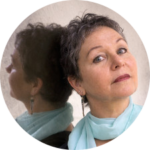
Elizabeth Rosner is a bestselling novelist, poet, and essayist living in Berkeley, California. The Speed of Light, Rosner’s acclaimed debut novel in 2001, was translated into nine languages. Blue Nude, her second novel, was selected as one of the best books of 2006 by the San Francisco Chronicle. Her third novel, Electric City, published in 2014, was named among the best books of the year by National Public Radio. Rosner’s essays have appeared in the NY Times Magazine, Elle, the Forward, and several anthologies.
11:00 am | Where There's Breath There's Hope, Tonier Cain
Tonier Cain takes an audience on a journey to places and subjects that most find too difficult or uncomfortable to fathom. But it is Tonier “Neen” Cain’s joyous spirit and astonishing inner-strength that leaps directly into audience hearts, inspiring renewed hope and compassion for those still living on the fringes. For two decades, Neen hustled on the streets of Annapolis, Maryland, desperately feeding an insatiable crack addiction and racking up 83 arrests along the way. After being consistently betrayed by the systems that were charged with helping, she finally found a program that allowed her to feel safe for the first time in her life. Only then could she confront the haunting childhood memories that she tried to numb with drugs: filth and chronic hunger, sexual assaults by neighborhood men, and routine physical and mental abuse dished out by her mother. Realizing for the first time that she had been a victim, she began to heal and reclaim power over her life, embarking on a remarkable “upward spiral,” that has no limit. Traveling the world to give speeches and work one-on-one with women in prisons and hospitals, Neen continues to transform her own life while helping others to embrace her motto “where there’s breath, there’s hope.”

Tonier Cain was the subject of the powerful documentary “Healing Neen” and is the founder of Healing Neen, Inc. She is the former team leader for the National Center for Trauma-Informed Care, with the National Association of State Mental Health Program Directors.
12:00 pm | Lunch / Los Angeles ACEs Meeting
Los Angeles is a city full of resilience. That resilience is highlighted in the many organizations who work to overcome adversity in both the individual and community levels. This meeting hosted by Los Angeles Community Manager for ACEsConnection will guide you through how to shine a spotlight on your work and how to connect with others in the community using ACEsConnection.com to broaden and deepen the movement towards a Resilient LA.
1:00 pm | Breakout Sessions - Click to view workshops
Yoga for Trauma Recovery
Hanna Gilan
This workshop offers some basic yoga tools for anyone working with families impacted by toxic stress in their homes or communities, and for personal health and wellbeing. In this condensed version of Echo’s one-day Yoga for Trauma Recovery training, we will be combining physical practice with the some of the science on trauma and recovery. Participants will preview some basic yoga and mindfulness techniques to practice in any environment – from the classroom to the office – to bring balance and peace to the mind and body. Read More
Embodied Childraising: Responding to Children Under Pressure
Kirstie Seaborne
Raising children is not just a logical process – it is relational, visceral, sensory, emotional, and above all, an embodied experience. We are practiced and comfortable living in our head but have become disconnected from our bodies. Echo has brought Kirstie Seaborne from the UK to offer a condensed version of her popular one-day training: “Responding to Children under Pressure – Changing our Embodied Response to Challenging Behaviors.” Kirstie will help you identify the physical and mental patterns that kick in when you are under pressure and then teach you how to embody a new, more connected and attuned response. Read More
Community Resiliency Model
James Bigelow
This session will introduce participants to six wellness skills. CRM® helps create trauma-informed and resiliency-focused individuals and communities, imbuing them with a common understanding of the impact of trauma and chronic stress on the nervous system and how to restore or increase resiliency using this skills-based approach. The two fundamental goals of CRM® are to help adults and children learn to track their own nervous systems in order to bring the body, mind and spirit back into greater balance, and to encourage people to pass the skills along to family, friends and their wider community. Read More
The Resilience Toolkit: Implementing a Practical Framework
Nkem Ndefo & Karen Calasuonno
This interactive and experiential workshop will teach participants to confidently implement The Resilience Toolkit, including an opportunity to practice the gently organic therapeutic tremor, an evidence-informed practice that uniquely completes the stress cycle. Grounded in theory, evidence, and a social justice context, The Toolkit utilizes selected mindfulness and movement practices to promote embodied self-awareness, nervous system, and emotional regulation. The Toolkit empowers participants with an intersectional and ecologically sensitive framework to identify their own stress physiology and select appropriate regulation skills that build resilience over time. Read More
The Light Shines Ahead: A Code for Living with Loss
Shaun Tomson
Shaun Tomson was at the pinnacle of his professional and personal life when his fifteen-year-old son, Mathew, died in a tragic accident. Drawing on the lessons he learned from his South African childhood and from riding the world’s most dangerous waves, he found the strength to face the hardest challenge of his life. He also found inspiration and hope by looking to “the light that shines ahead” – experiencing the spiritual growth that is often a feature of post-traumatic growth. His book, ‘The Code – The Power of “I Will”’ sets out a powerful code for reevaluating one’s purpose after loss. As Shaun says, “The lessons of a life spent surfing are the lessons of surfing through life: Every moment holds the possibility of failure and tragedy, every moment the promise of success and happiness.” Read More
2:45 pm | The New Science of Post-Traumatic Growth, Jim Rendon
Jim Rendon will be drawing on his newest book, “Upside: The New Science of Post-Traumatic Growth” to explore the life-changing implications of this emerging field of psychological study. For a long time, psychologists thought that those who survive terrible events will only suffer as a result. But in the early 1990s, pioneering researchers discovered that trauma is far more complex than that. Yes, trauma survivors suffer, sometimes struggling with post-traumatic stress disorder, but that suffering can also be the catalyst for positive changes. According to a growing body of research, as many as two thirds of trauma survivors actually emerge stronger, more focused, and with a new perspective on their future – in other words, experience post-traumatic growth. Jim will use stories from his book as well as point to the science to explain how we can grow and help others grow after trauma.
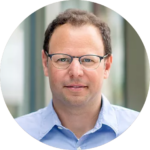
Jim Rendon is a freelance journalist who covers business, science, design, the environment and plenty of other topics. His work has appeared in The New York Times Magazine and newspaper, Mother Jones, Marie Claire, Fortune, Men’s Journal, Rolling Stone, Outside.
